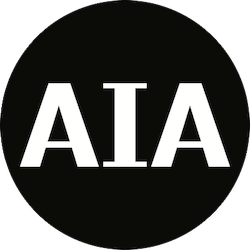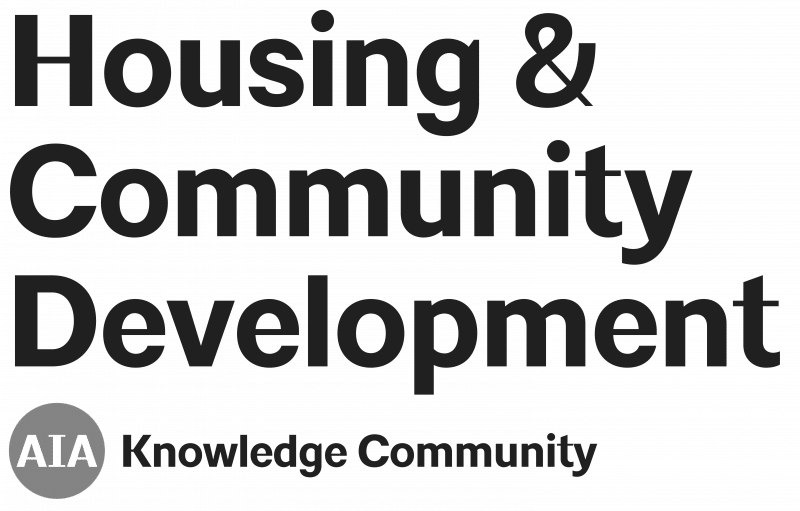Jan. 9 – 11, 2025 | Austin, TX
2025 ACSA/AIA Intersections Research Conference:
NEW HOUSING PARADIGMS
Fall Conference
Call for Abstracts & Case Studies
Submission Deadline: September 4, 2024
Submission Timeline
September 4, 2024 | Submission Deadline |
The 2025 ACSA/AIA Intersections Research Conference invites contributions, papers, projects, case studies, and critical observations that speculate on, advocate for, operate within, and struggle with new housing paradigms. Innovative approaches are welcome at all scales, from single unit to master plan as we recognize even the smallest unit of private space to inherently be an urban problem. Contributions should relate to one of the tracks listed below or address potential overlaps between no more than two.
Housing for Equitable Communities
Contributions that engage with, leverage, or invent political or economic processes and outcomes that positively impact affordability, communities, equity, or intervene at a larger scale of urban design or urbanism.
Housing as Radical Solution
Solutions that radically rethink housing, its constituent parts (material, space, typology), its effects, representations, or its genesis to generate alternative visions or productive critiques or engage with the long lineage of utopian and/or dystopian visions for ways we live.
Housing as Pedagogy
Contributions that interrogate the way we teach future generations of architects, educate constituents, and disseminate information to leverage talent and skill towards the goal of better housing.
Housing for Ecology
Contributions that recognize the inherent roles of housing in preserving, strengthening, and creating ecosystems, or reducing greenhouse gases.
Housing for Well-being + Health
Contributions that focus on health inequalities, cater to specific vulnerabilities and needs, and capabilities of housing to positively impact its (urban) environments, or human interactions therein.
Submission Requirements
Submission Deadline: September 4, 2024
Call for Abstracts
Selection of scholarly presentations will be based on double-blind peer review of Abstracts accompanied by optional images. Authors of accepted abstracts who present their work at the conference are then invited to submit a full paper or case study for inclusion in the conference proceedings. It is expected that feedback from the abstract review and conference presentation will inform the final submission.
- Abstract (500-words max), Title (100-characters max) & Endnotes (optional: 250-word max)
- Images (optional): No more than 5 images (jpg format)
- Select a primary and secondary track
- Submissions must be prepared for anonymous review (remove author/contributor names and affiliation identification)
- Submissions must report on recently completed work and cannot have been previously published or presented in public, except to a regional audience
- Submissions must be written in English
- An author may present no more than one abstract or case study at the conference. No individual may be listed as co-author on more than two submissions.
Call for Case Studies
Selection of presentations will be based on blind peer review of Case Studies accompanied by images. Authors of accepted case studies will be invited to present their work at the conference and may submit a case study for inclusion in the conference proceedings.
- Case Studies (500-words max), Title (100-characters max) & Endnotes (optional: 250-word max)
- Images: No more than 5 images (jpg format)
- Select a primary and secondary track
- Submissions must be prepared for anonymous review (remove author/contributor names and affiliation identification)
- Submissions must report on recently completed work and cannot have been previously published or presented in public, except to a regional audience
- Case Study submissions should summarize the motivation, context and objective of the relevant architectural project or material research and development; highlight the most salient issues, challenges or dilemmas faced by the project team in their particular context; share explored pathways to meet these challenges; provide relevant frameworks, data, analysis, insights and findings; and suggest transferable knowledge
- Submissions must be written in English
- An author may present no more than one abstract or case study at the conference. No individual may be listed as co-author on more than two submissions.
Eligibility
Educators, Practitioners, Researchers and Students are all encouraged to submit. If you are already an ACSA member, please log into the website to complete your online submission. If you are not an ACSA member or do not have an ACSA login, please create one online HERE. You may also request access by contacting ACSA directly at info@acsa-arch.org.
HOW TO SUBMIT
Authors must submit through the ACSA online interface. All submitting authors must have an ACSA database profile. If you are not an ACSA member or do not have an account, you can create an account.
Follow the steps below to complete your submission. The ACSA online interface will guide you through the remaining steps.
- Log in using your ACSA username and password. Click here if you forgot your password.
- Click the Enter Now button.
- Select Intersections Research Conference 2025 from the dropdown menu and click Create New Submission.
- Click Add Myself as Author and then add other authors, if applicable.
- On the next page, fill in the text boxes for title and abstract. These are simple copy/paste text boxes.
- To add images, attach them by clicking Browse.
- Select a primary and secondary tracks from the options above.
- Select Either: Abstract or Case Study
- On the Proofread page you have the opportunity to review your work before finalizing your submission.
- Click Complete My Submission. You have completed your submission and should receive a confirmation email for verification.
Presentation & Publication
Following the blind peer-review process, the conference co-chairs make final acceptance decisions. All authors will be notified of the status of their submission and will receive comments from their reviewers. Final acceptance of abstracts translates to presentation at the conference. Sessions will be composed of four to five accepted authors allowing for both scholarly and applied research to demonstrate impact.
Accepted abstracts will be invited to expand on their research and submit a full paper or Case Study, post-conference, to be included in the conference proceedings. Full Papers are to be 2500-4000 words with optional 1-5 images. Full Case Studies may be up to 1000 words with 5-10 images. Authors accepted to present at the conference will be required to complete a copyright transfer form and agree to present the research at the conference before it is published. It is ACSA policy that accepted authors must pay full conference registration in order to be included in the conference presentation and proceedings. Once the conference proceedings is published, each submission will be included in the Proceedings Index.
Conference Partners
Questions
Michelle Sturges
ACSA
Conferences Manager
202-785-2324
msturges@acsa-arch.org
Eric Wayne Ellis
ACSA
Sr. Dir. of Operations & Programs
202-785-2324
eellis@acsa-arch.org
Michele A. Russo
AIA
Vice President, Research
202-626-9045
research@aia.org

 Study Architecture
Study Architecture  ProPEL
ProPEL 






